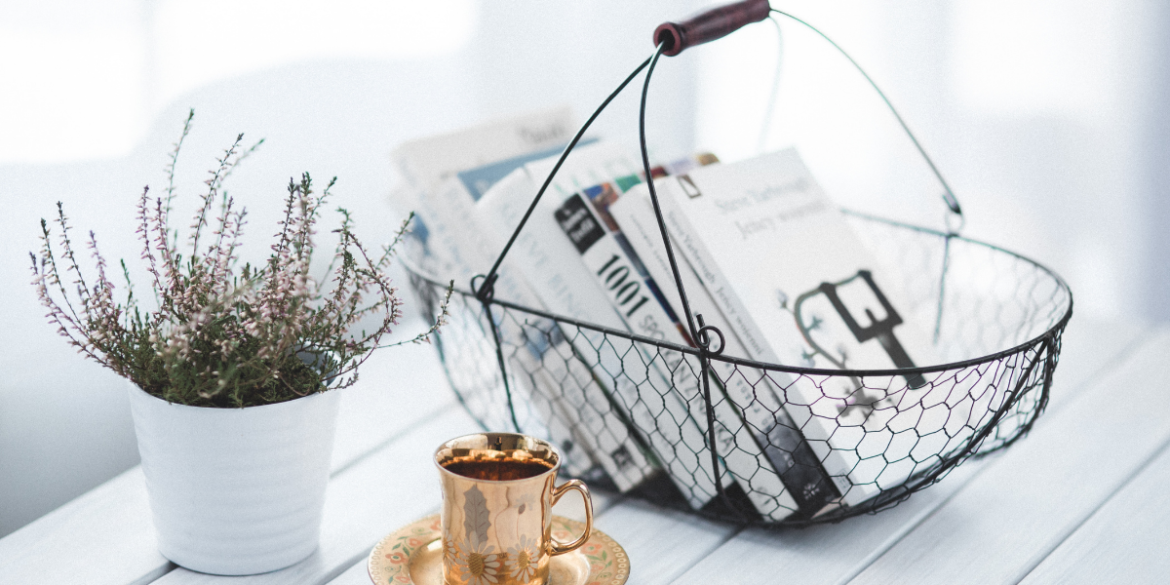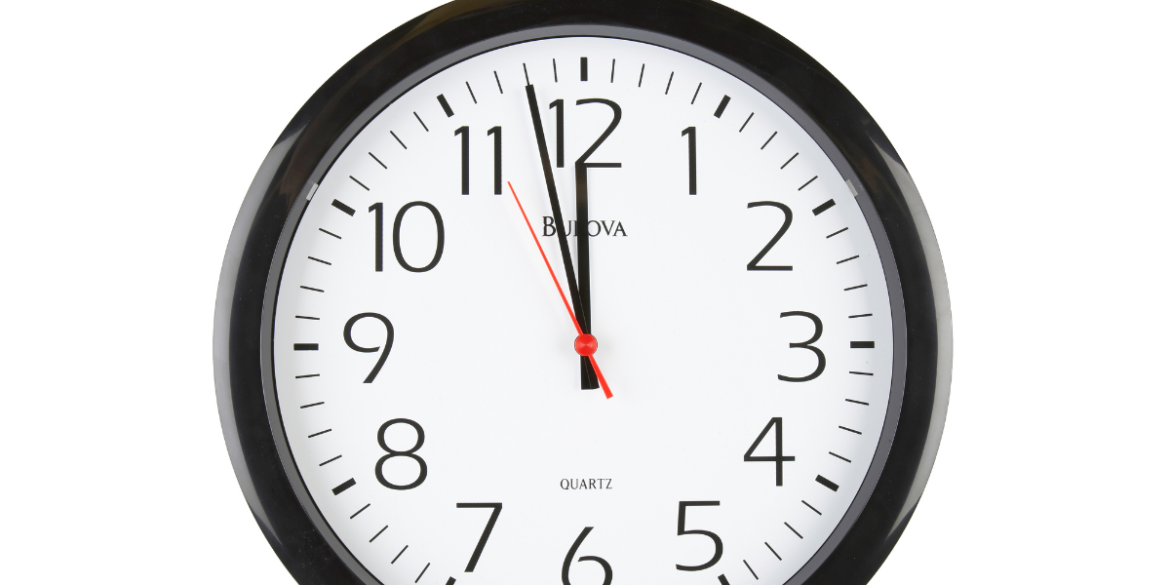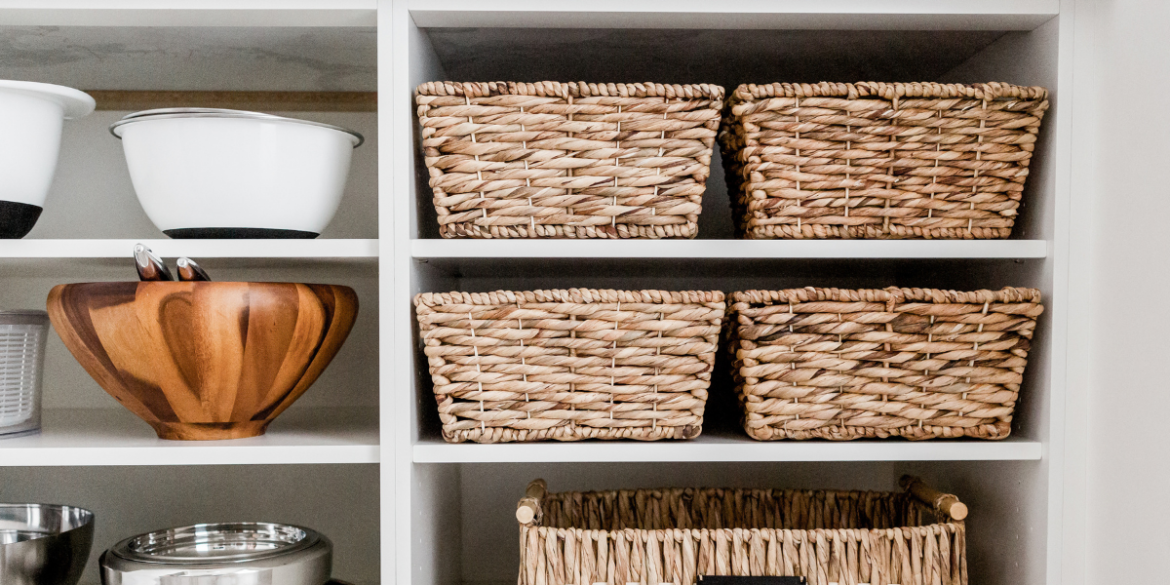Organising
How organized are you really? Find out now!
How organized are you? Are you constantly chasing your tail? Take the questionnaire, then follow our tips for an organized life. From scheduling time more effectively to decluttering your space, there are many different ways to get organized and stay that way!
How do you stay organized? The key to getting organized is finding the best approach for you. These great tips will help to get you started, from making the most of technology to using effective storage solutions. With some simple tweaks to your daily routine and a bit of perseverance, you’ll soon find that staying organized becomes easier and more manageable for you and your family.
What is organization, and why does it matter?
Being organized means having a structured and efficient approach to managing various aspects of life. An organized individual completes their tasks on time and saves energy and resources. Truly organized people focus on achieving their goals and always look for ways to improve the quality of their life.
At its core, organization refers to how things are arranged or structured. In a business or company, organization plays a vital role in its success. A well-organized business is more efficient, productive, and able to meet the needs of its customers or clients. It also helps to simplify tasks, reduce errors, and improve communication. But, organization is not just important in the business world. It is also crucial in our personal lives. A well-organized living space and home can help reduce stress, increase productivity, and improve overall well-being. So whether it’s in our work or personal life, being organized is a key component to success and happiness.
Try running your household as you would a business and see how much more you can achieve throughout the day!
Clare from The Organizer
What are the benefits of being organized?
Being organized is crucial for success in various aspects of life. Whether at work, school, or home, the benefits of organization are undeniable.
- It saves time. You don’t waste time looking for misplaced items or documents when everything is neatly arranged.
- Reduces stress, minimizing the feeling of being overwhelmed by tasks or responsibilities.
- You stay on top of deadlines and prioritize tasks, which leads to a more fulfilling and productive day.
- Lastly, organizing increases efficiency, as you can easily identify and eliminate unnecessary steps or processes in your daily routine.
How organized are you?
Are you the sort of person who’s always on top of their schedule and never forgets an important date? Or do you find yourself regularly running late, never organized, and constantly losing things? Everyone’s approach to organization is different. Some people thrive in well-defined structures, while others may feel smothered under a rigid routine. This blog post examines how your level of organization can affect your day-to-day life and provide helpful tips for managing it better. Let’s dive into what it really means to be organized!

Organization is a practice that can be extremely rewarding. It can bring order, clarity, and peace of mind. Taking the time to establish systems and habits for staying organized can be extremely worthwhile. Evaluating what’s working and what’s not will help you settle on a routine that works for you. Technology offers an excellent tool for setting reminders, tracking tasks, staying on top of projects, creating systems for sorting information, and more. Properly storing items away in designated locations reduces clutter both physically and mentally. The quicker we establish a place for organization in our daily lives, the easier it seems to be to keep it that way. So take some time to ask yourself, how organized am I? Make any necessary changes and watch your productivity start to blossom!
How organized are you really? Take the test!
Discover if you’re an organized person by answering these simple questions!
Household organization

1. How often do you clean and organize your living space?
2. Do you struggle to keep up with household chores?
3. How do you prioritize your household tasks?
4. Have you ever missed an important deadline or appointment due to disorganization?
5. Have you created any systems or routines to help manage household responsibilities?
Work-related organization

1. How do you prioritize your work tasks?
2. How do you manage your time at work?
3. Have you ever missed a deadline or important meeting due to poor organization?
4. How do you stay on top of paperwork and administrative tasks?
5. Do you use any digital tools to help manage your work responsibilities?
Personal, organizational skills, time management, and self-motivation.

1. How do you prioritize your personal goals and responsibilities?
2. Have you ever missed a personal deadline or goal due to poor organization?
3. How do you manage your time for personal projects or hobbies?
4. Do you use checklists or systems to help keep yourself on track?
5. How do you remain motivated and focused on your personal goals and responsibilities?
Timekeeping is an important aspect of personal organization.

1. How do you track your appointments and commitments in your personal life? Do you use an online calendar or a physical planner?
2. How do you ensure you arrive on time for appointments and events? What strategies do you use to avoid lateness?
3. Do you set aside specific blocks of time for your personal responsibilities? How do you use your time effectively?
4. How do you handle unexpected disruptions to your schedule or routine? For example, how do you reprioritize your time if you suddenly have to handle an emergency?
5. Have you ever noticed a pattern of procrastination or putting off important tasks in your personal life? How do you combat this tendency and motivate yourself to stay on track?
Now, review your answers and pinpoint areas where you can improve. With the guidance below, you can begin making positive life changes.
This post contains affiliate links, and The Organizer UK may earn commissions for purchases made through the links in this post. For more details, see here. Thank you so much for your support!
22 tips to incorporate into your life to help you get organized
This comprehensive guide presents 22 actionable steps to help you become a master of organization. Incorporate these simple steps into your daily life and watch your productivity and success soar.
- Set Clear Goals and Priorities
Begin by establishing clear and specific goals for different areas of your life, such as career, personal growth, family, and relationships. Break these goals into small, manageable tasks and set deadlines for each. Allocate time and resources to ensure that these tasks are efficiently completed. Prioritizing your goals lets you focus on what matters, leading to better organization and productivity.

- Create a To-Do List for Daily, Weekly, and Monthly Tasks
To avoid forgetting tasks or goals, maintain a to-do list updated daily. Prioritize tasks based on importance, priority, and deadlines, and cross off items as they’re completed. This visual representation of your progress encourages motivation and provides a clear overview of your commitments.
Start by jotting down all the tasks that must be done daily, such as responding to emails, walking the dog, and doing the dishes. Then, add in weekly tasks like grocery shopping and paying bills. Finally, include monthly tasks such as deep cleaning your home or filing important documents.
By breaking down your to-do list into these categories, you can prioritize your tasks and feel more in control of your day-to-day life. - Utilize Technology to Help with Organization
In today’s fast-paced world, staying organized can be a challenge. That’s where technology comes in. With the support of various digital tools, you can keep track of your schedule, to-do lists, and important documents in one place. Technology has made it effortless to stay on top of your daily tasks, from apps that remind you of upcoming deadlines to cloud storage systems that securely store your files. Whether you are a student, mom, professional, or both, technology can help streamline your workflow and keep you organized and productive.
Use apps like:
Trello, Todoist, or Asana to manage tasks and projects.
Google Calendar or your iPhone calendar for scheduling.
Evernote or your iPhone notes for note-taking.
These tools synchronize across devices, ensuring you always have your schedule and important information at hand. It’s like having your own personal organizational system wherever you are! - Communicate Effectively
Good communication is vital for staying organized in personal and professional relationships. Keep friends, family, and coworkers informed of your schedule and commitments. Utilize collaboration tools and regular check-ins with family members to ensure everyone stays on the same page, minimizing confusion and disorganization.
- Improve Time Management Skills
Effective time management strategies are crucial for staying organized. Use a planner or digital calendar on your phone to keep track of appointments, commitments, and deadlines. I also like to keep a paper planner on the kitchen worksurface where everyone in the family can add their commitments and see where they should be.
Split your day into time blocks dedicated to specific tasks such as work, housework, exercise, phone calls, or personal projects. You can optimize your time and prevent tasks from piling up. Remember to prioritize family time too! - Develop a Morning Routine
A morning routine sets the tone for the rest of your day. Cultivate a routine that helps you start your day with positivity and energy. This may include activities like meditation, exercise, or journaling. A consistent morning routine lets you remain focused and organized throughout the day.

- Adopt Good Habits to Stay Organized
Staying organized can be daunting, but adopting good habits can make it feel like a breeze. Instead of letting clutter and chaos take over your life, establish routines like this one to keep everything in order.
Maybe it’s taking a few minutes each night to tidy up before bed or setting aside a specific day to declutter and organize your workspace. Whatever habits you choose, ensure they fit into your lifestyle and are easy to maintain. - Establish a Filing System
A filing system, whether physical or digital, is necessary to track essential documents and information. Develop a logical filing system that allows you to retrieve required documents quickly. Regularly maintain this system by adding new files and disposing of outdated ones.
Stop letting piles of mail take over your home. Take a few minutes each day to quickly open and either file or shred it. This one small habit can greatly impact keeping your living space tidy and organized.
Remember, if your filing system is too cluttered or overly complicated, you will not keep up with filing your paperwork daily. Simplify your files and make them simple and accessible so you can organize your paperwork daily. - Adopt the Two-Minute Rule
The Two-Minute Rule states that if a task takes less than two minutes to complete, do it immediately. This simple technique prevents small tasks from piling up and helps maintain a high level of organization in all areas of life.

- Break Down Large Tasks into Smaller Steps
Tackling large tasks can seem daunting and lead to procrastination. Break them down into smaller, more manageable steps with their own deadlines to make them less overwhelming. This approach improves organization and reduces the likelihood of falling behind on projects.
- Create Weekly Routines and Habits
Develop routines and habits that support organization and productivity. For example, set aside specific time blocks for housekeeping or administrative tasks. After a while, these routines will become second nature, making it easier to stay organized without conscious effort.
- Review and Reflect Weekly
Spend time at the end of each week reflecting on your progress and evaluating your organizational skills. Note any areas where improvements can be made and adjust your approach accordingly. Regular reflection encourages personal growth and helps you stay organized in the long run.
- Declutter Your Physical Space
A clutter-free environment enables better focus and productivity. Designate specific locations for essential items and always return them to their proper home after use. Regularly declutter and organize your living and working spaces to maintain a clean and efficient environment.
- Delegate Tasks When Possible
Delegating tasks to others can help you stay organized and lessen your workload. The first thing to do is to Identify tasks you can delegate to coworkers, family members, or friends and clearly communicate your needs and expectations. Learning to delegate effectively helps you focus on essential activities and prevent burnout. Read how to stay organized when you live with chronic pain in this post.
- Organize Your Digital Life
Just as physical clutter can impede organization, so can digital clutter. Regularly organize your email inbox, computer files, and digital photos. Unsubscribe from unwanted email lists, delete unused files and invest in cloud storage to keep your digital life well-organized. I love the Chuck app to help me reduce my emails and unsubscribe from unwanted emails.

- Learn to Say No
Avoid overcommitting and overwhelming yourself by learning to say no. Before saying yes, assess whether new tasks or engagements align with your goals and priorities. This ensures you take on only the most essential, leaving time and resources for other important activities. I find this particularly important with kids’ after-school activities.
- Avoid Multi-Tasking
Multi-tasking may seem like an effective way to get more done in less time, but it actually reduces productivity and organization. Instead of multi-tasking, focus on completing one task at a time and giving it your full attention. This practice encourages better organization and improved overall performance.

- Set Deadlines for Yourself
Set deadlines for personal goals to increase motivation and organization. These deadlines should be realistic yet challenging, pushing you to stay organized and complete tasks before or on time.
- Block Unproductive Habits and Distractions
Unproductive habits such as procrastination or excessive social media use can reduce organization in all areas of life. Identify these habits and develop strategies to block them, such as setting time limits for leisure activities or using apps like StayFocusd to limit access to certain websites.

- Make Use of Available Resources
Take advantage of the resources available, whether advice from an experienced mentor or a digital organizing tool. Utilizing such resources reduces the need for trial-and-error experimentation and helps you stay organized more quickly and efficiently.
- Celebrate Your Achievements
Recognize and celebrate your successes, no matter how small. This will keep you motivated to stay organized and continue pursuing your goals. Acknowledge your progress, appreciate yourself for all you’ve done, and keep striving for greater achievements in the future.
- Have a Place for Everything by Implementing Storage Solutions
It is overwhelming when your home is bursting at the seams with no solution on the horizon. That’s where storage solutions come in! Once you’ve decluttered, you can find a place for most things in your home by implementing clever storage ideas. The possibilities are endless, from simple storage bins like these and baskets to custom closet organizers like these. You will feel more organized and enjoy a functional living space. Just make sure you put everything back once you’ve finished using it!

These are the 22 actionable steps to become a master of organization. Incorporate these tips into your daily life, and you’ll soon become more organized, productive, and successful.
We hope this blog post helped you assess your organization level, identify where you need to improve, and learn some strategies for staying organized. By following the tips above and taking charge of your life, you’ll have more time to focus on the things that matter most to you. Now it’s up to you set yourself up for success and prioritize organization!
If you have any questions about how to keep yourself organized, drop us a line in the comments.

